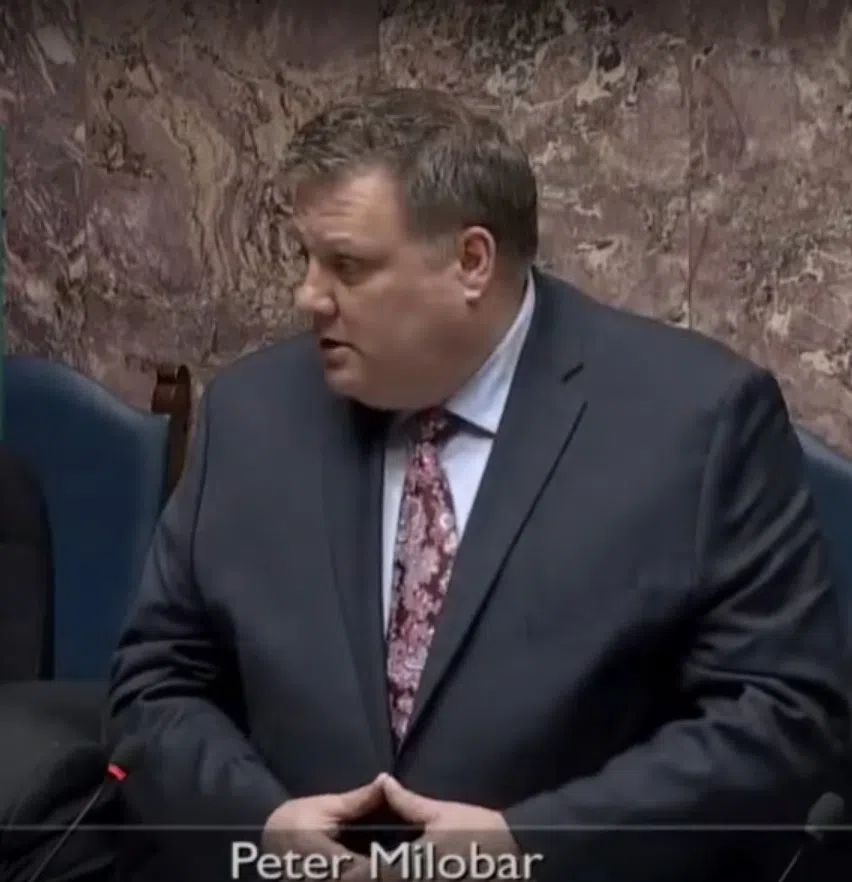
British Columbia’s new finance minister said she is “realistic” about the economic challenges facing the province after announcing this year’s record deficit is projected to reach $9.4 billion.
Brenda Bailey said Tuesday that the forecasted deficit for 2024-2025 has grown by $429 million from the $8.9 billion estimated in the last fiscal update in September, mainly due to lower revenues.
But Bailey said the rising deficit projection will not change the provincial government’s intention to make “smart, targeted investments” to grow the economy, rather than cutting services.
Kamloops Centre MLA and BC Conservative Party finance critic Peter Milobar says it is a bit shocking. “We’re now at nine point, almost $9.5 billion by far, the large deficit in BC history, far exceeding anything that happened in COVID and no end in sight. You know, in fact, the outlook for next year has now been downgraded by the government themselves from what they were projecting in the spring for 2025 so unfortunately, I think things are going to get much worse before they get any better.”
Bailey also promised affordability relief for B.C. residents on the path to a balanced budget. “It’s my view (that) you can’t pour from an empty cup,” Bailey said of the need to build up the economy instead of short-term cuts. “And so, the work to fill that cup and to really unlock the economic potential that exists in British Columbia is work that’s ahead of us, and I’m really looking forward to doing it.”
Then-Finance Minister Katrine Conroy presented B.C.’s last quarterly financial update in September with what was then a record $8.9 billion budget deficit for this year, a figure that was already $1.1 billion higher than a previous update.
“I think we have to be very clear the the projected downturn in the economy compared to what they were thinking in February, March, when they brought forward this budget for next year. Is not inclusive of the tariffs,” said Milobar. “This is independent of the tariffs. And so that would make things even worse.”
Milobar says we need to see an actual move to reinvigorate our private sector economy. “The biggest drop we’re seeing in revenues right now is actually on the back, so that private sector, in terms of their corporate taxes, are paying, which means they’re finding BC not to be very profitable, which means they’re not investing capital and reinvesting expanding their operations in BC, and that has a drag on the overall employment. And now we’re seeing in the economy as well”
Bailey also noted that part of the deficit is offset by lower than expected wildfire spending and improved projections at ICBC. “Another significant revenue change is that the net income for commercial crown corporations is expected to improve since q one from higher investment earnings at ICBC. on the expense side, there are a number of increases, including higher forecasted statutory spending and higher net spending from service delivery, agencies, primarily by health authorities.”
Milobar doesn’t want to hear about natural disasters and wildfires as part of this conversation. “Frankly, the last quarter, the government was using it as an excuse for why the deficit was getting bad. This time they’re saying they didn’t spend as much money. The reality is, it’s kind of like the city of Kamloops and their snow plow budget. There’s always going to be money there for those things.”
“People would understand that the underlying problem that we’re seeing quarter after quarter with this government is that the private sector economy is taking it on the chin. It’s rippling through we’re seeing an operating debt to government that has ballooned to $16 billion a year now, and that is where the real problems and struggles are.”
Milobar went on to criticize Premier David Eby’s handling of pay raises within cabinet. “In the same week that the Premier is telling the business community he’s going to rein in spending and that he’s going to have a hiring freeze, he’s promoting and elevating staff within his own office and giving significant pay raises. The two aren’t connecting here in terms of what the Premier is saying publicly and actions he’s taking within his own cabinet or his own office.”















